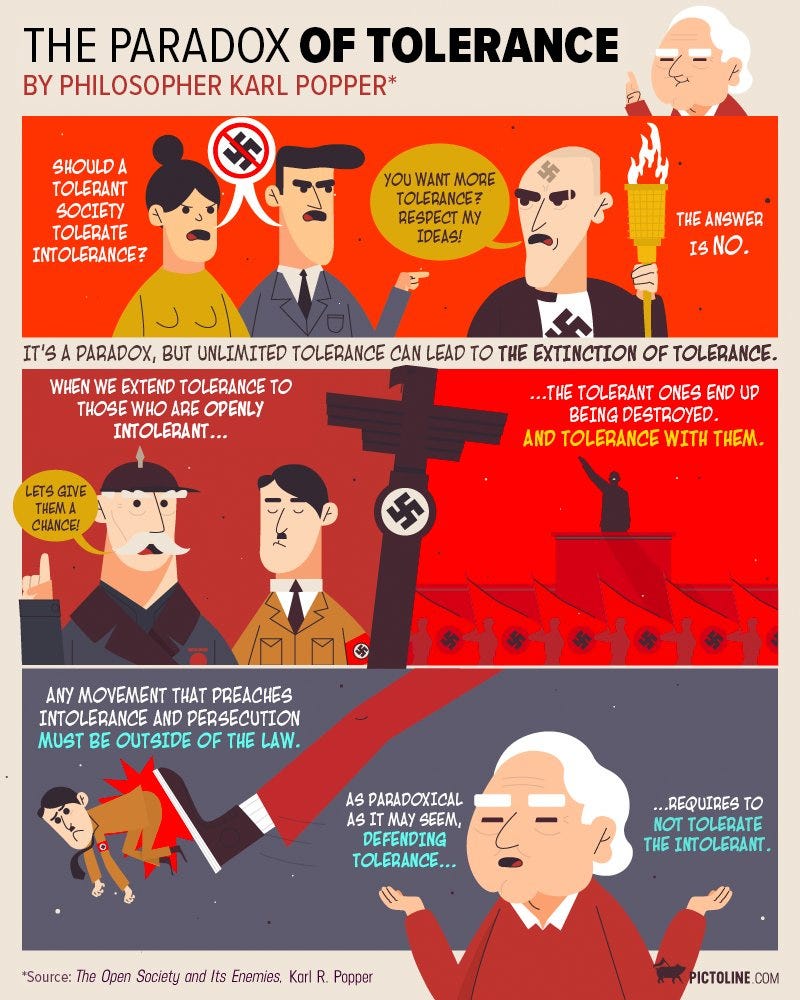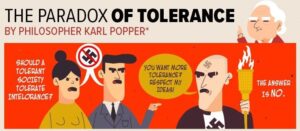In Dis/Rep Karl Popper’s The Paradox of Tolerance inspired the idea of the paradox of accessibility. We had just read an excerpt of, The Future Is Disabled, by Leah Lakshmi-Piepzna Samarasinha. In some Disability Justice spaces, people will weaponize their disabled identity in order to avoid accountability or cause harm. This includes a combination of white supremacy concepts of perfection (as conceptualized by Tema Okun), and use of the master’s tools (as conceptualized by Audre Lorde).
The Paradox of Tolerance
In “The Open Society and Its Enemies” (1945) Karl Popper contends, that if a society is endlessly tolerant, it will eventually tolerate the intolerant. These intolerant people will exploit this tolerance to destroy the very fabric of the tolerant society. Popper posits that to preserve a tolerant society, it must be intolerant of intolerance. This creates an apparent contradiction: to maintain tolerance, one must sometimes be intolerant.
The Paradox of Accessibility
It can feel like a contradiction when a disabled collaborator accuses another disabled collaborator of ableism. Access frictions are inevitable and to be expected. But sometimes the space has genuinely been ableist. However there are also situations where the perpetrator of a microaggression is attempting to deflect blame from themselves. It’s actually ableist to use disability identity as an excuse for performing microaggressions. There are also rare situations where participants can demand their access needs be met in abusive ways. Hence the paradox of accessibility.
Resolving the Paradox
The essence of these paradoxes lies in the necessity of setting boundaries to safeguard core values. This can prevent the subversion of a free society by forces that oppose its foundational principles. For Disability Justice spaces this means negotiating the necessity of honoring access needs while working within resources. When communication is clear, values are in place, and people are participating in good faith the entire community can navigate these paradoxes.


